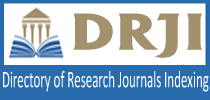The Psychological Condition of STIQ Amuntai Student’s in Learning Arabic
Abstract
This study discussed the psychological condition of STIQ Amuntai students in learning Arabic and the factors that affect the psychological condition of STIQ Amuntai students in learning Arabic. This study aimed to determine the psychological condition of students of the Al-Quran College of Science in learning Arabic, both students with religious education background such as Aliyah/Islamic boarding schools and students with public schools background such as high schools, vocational schools. This study also discussed the factors that influenced the psychological condition of students during learning Arabic. This research is a qualitative descriptive study. The data were collected by observation, interviews, and documentation. The process of data analysis is by examining all observed data from related to Arabic learning, checking the validity of the findings by author participation. The conclusion from this study can be argued that the psychological condition of STIQ Amuntai students in learning Arabic was not good, they were less enthusiastic and confused when learning Arabic. It is due to several factors, namely: diverse school backgrounds and lack insights about Arabic such as a lack of management of Arabic learning materials. Beside that they were faced with various other subject matter and the obligation to memorize al-Quran, thus the interest and enthusiasm gradually diminished. The lecturer background is in accordance with their education and the syllabus is in line with the campus syllabus. The teaching methods were not suitable for students abilities. Campus environment that did not use Arabic both from superiors and students. There were inadequate facilities and infrastructure, such as language laboratories that were not used according to their function.
Keywords
Full Text:
PDFReferences
A’la, Miftahul. Quantum Teaching. Jogjakarta: DIVA Press. 2012
A.M., Sardiman. Ineteraksi dan Motivasi Belajar-Mengajar. Jakarta: Rajawali Pers. 2010
Ahmadi, Abu & Supriyono, Widodo.Psikologi Belajar edisi revisi. Jakarta: PT RINEKA CIPTA. 2004
Arif , Masykur. Betapa Dahsyatnya Akibat Pikiran-Pikiran Negatif. Jogjakarta: DIVA Press. 2011
Desmita. Psikologi Perkembangan Peserta Didik. Bandung: PT REMAJA ROSDAKARYA. 2009
Gazali. Ilmu Jiwa. Bandung-Jakarta: GANACO N.V.. 1974
Gunarsa, Singgih D & Gunarsa, Yulia Singgih D.Psikologi Praktis: Anak, Remaja dan Keluarga. Jakarta: Gunung Mulia. 2004
Izzan, Ahmad.Metodelogi Pembelajaran Bahasa Arab. Bandung: Humanira. 2011
Mashudi, Farid. Panduan Evaluasi & supervisi Bimbingan dan konseling. Jogjakarta: DIVA Press. 2013
Musbikin, Imam. Mogok Sekolah + Malas Mengatasi Anak Belajar. Jogjakarta: Laksana. 2012
Santoso, Teguh.7 Rahasia Mengatasi Putus Asa. Jakarta Selatan: Tugu Publisher. 2011
Sarwono, Sarlito Wirawan.Psikologi Remaja. Jakarta: PT RajaGrafindo Persada. 2007
Sumardi, Muljanto.Berbagai Pendekatan dalam Pengajaran Bahasa dan Sastra. Jakarta: Pustaka Sinar Harapan. 1996
Suryabrata, Sumadi.Psikologi Kepribadian. Jakarta: PT RajaGrafindo Persada. 2008
Suryabrata, Sumadi. Psikologi Pendidikan. Jakarta: PT RajaGrafindo Persada. 2008
Tohirin.Psikologi Pembelajaran Pendidikan Agama Islam (Berbasis Integrasi dan Kompetensi). Jakarta: PT Grafindo Persada. 2008
DOI: https://doi.org/10.31869/aflj.v1i1.2482
Article Metrics
Abstract view : 295 timesPDF - 217 times
Refbacks
- There are currently no refbacks.
INDEXED BY:








 This work is licensed under a Creative Commons Attribution-ShareAlike 4.0 International License.
This work is licensed under a Creative Commons Attribution-ShareAlike 4.0 International License.




